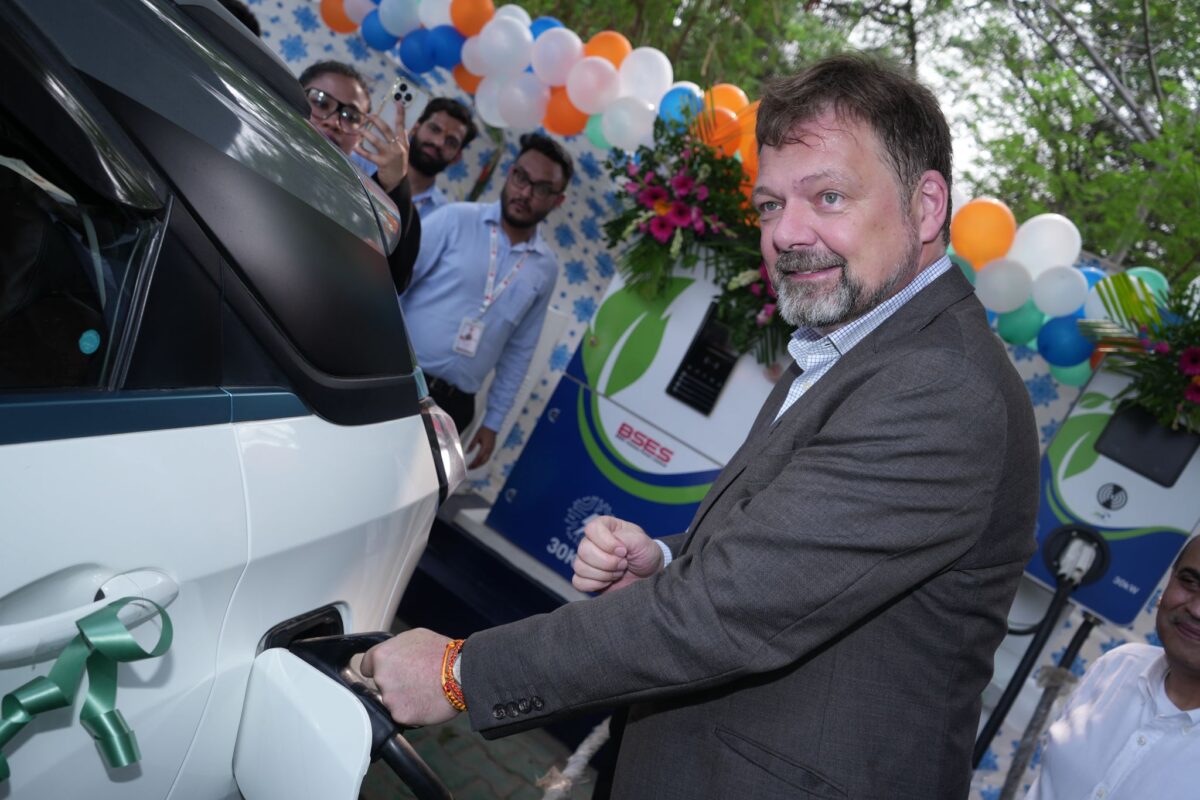Philipp Ackermann, German Ambassador to India and Bhutan, recently inaugurated a grid-connected solar-powered EV charging station at Hauz Khas Village Parking Station in Delhi. This pilot project was conceptualized by industry body National Solar Energy Federation of India (NSEFI) and Delhi electricity distribution company BSES to demonstrate a model concept for solar net-metering combined with EV fast charging. It is supported by German non-profit company Sequa GmbH as part of the Business Membership Organization Partnerships of the German Federal Ministry for Economic Cooperation and Development (BMZ).
“This PV carport brings a business model to discom and business operators seeking to replace last-mile delivery vehicles for goods and services with an electric fleet. The system allows for fast charging of two and four-wheelers in less than an hour while providing delivery services in inner city and confined spaces,” stated NSEFI.
NSEFI is an umbrella organization representing renewable energy (RE) companies that are active along the whole RE value chain comprising international, national, and regional companies including developers, manufacturers, EPC contractors, installers, system integrators, small and medium enterprises etc. As an industry body, it is at the helm of policy advocacy for the growth of RE in India. NSEFI engages with multiple government stakeholders regularly based on the feedback from its members and provides its inputs on the policies pertaining to various subsectors of the Indian RE sector.
This content is protected by copyright and may not be reused. If you want to cooperate with us and would like to reuse some of our content, please contact: editors@pv-magazine.com.









By submitting this form you agree to pv magazine using your data for the purposes of publishing your comment.
Your personal data will only be disclosed or otherwise transmitted to third parties for the purposes of spam filtering or if this is necessary for technical maintenance of the website. Any other transfer to third parties will not take place unless this is justified on the basis of applicable data protection regulations or if pv magazine is legally obliged to do so.
You may revoke this consent at any time with effect for the future, in which case your personal data will be deleted immediately. Otherwise, your data will be deleted if pv magazine has processed your request or the purpose of data storage is fulfilled.
Further information on data privacy can be found in our Data Protection Policy.